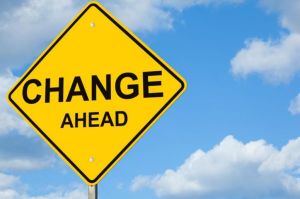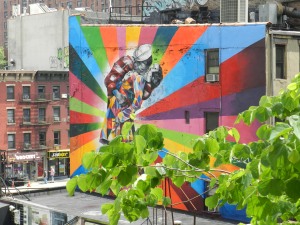Sermon – Advent 2
December 7th 2014 (Year B)
By Roland Legge
Isaiah 40:1-11
2 Peter 3:8-15a
Mark 1:1-8
It is hard to ignore John the Baptist! Would you or I have been one of the many people who chose to come to John for his baptism of repentance? I am not sure if I would have left my comfortable sofa to go into the wilderness to be baptized by this loud and smelly man. How in the world does this wild story this fit into Advent?
I think for many of us this Advent/Christmas season is supposed to be one of comfort, memories and nostalgia. It is supposed to be a time of happiness. It is supposed to be a time of generosity. It is a time of frivolity with parties and concerts to attend. It is the time of year that we think of the needy and try to make their lives a little better. But John the Baptist has a difference understanding of Advent.
If we listen to John the Baptist, Advent is all about repentance! Repenting is hard work. It forces us to look deeply into ourselves to see how we need to bring our lives back closer to the ways of God. This is hard work because we will have to face our own fears, shame and hopeless if we are to truly repent. It will require us to change how we live not just in that moment but to integrate those changes into our lives on a daily basis. Old habits will need to change. But there is a huge reward that goes along with that hard work. That reward is inward joy!
Much of what we have to do is in the choices that we make. Much of what we have to do comes out of our conversations. It is often about taking a stand and living into it.
Many years ago I took a stand when I chose to help clean the homes of people living with HIV/AIDS when there was no hope for recovery. You see there were many homemakers who wouldn’t do this out of fear of infection and prejudice. This doesn’t mean it was easy, but with the help of God working through others I was able to do this and make a difference in these people’s lives. I was able to it despite my own fears.
Recently there was a gathering of people who took a stand in a theater in St. Louis Missouri where the terrible violence has been taking place due to the killing of a young black man called Mike Brown by a white police officer. It involve a piece of music written by JOHANNES BRAHMS called the German Requiem, that when first played in Vienna in 1867 caused a great uproar; there was boos, inappropriate behaviour and disgust. What was so controversial? It was controversial because it was a piece of religious music being played in a public hall.
Now many years later the same piece along with Detlev Glanert’s arrangement of Brahms’ Four Preludes and Serious Songs was being played at the Powell Hall in St. Louis and got a similar reaction. It took place after the intermission when
conductor Markus Stenz took the stage, two audience members began to sing. In strong, clear voices, they performed Florence Patton Reece’s famous justice hymn: “Which side are you on, friend? Which side are you on?” Nearly a dozen more scattered throughout Powell Hall joined in. While the audience watched in stunned silence, a banner unfurled from the balcony with a silhouette of a man’s face. It said: Requiem for Mike Brown 1996-2014.
Season of Disruption by Rose Marie Berger http://sojo.net/preaching-the-word/season-disruption?parent=41143
One theatergoer challenged if the theater was an appropriate place for a protest. A Catholic Priest spoke up and challenged the man complaining by inviting people to change the chant from of “What side are you On” to How are we going to heal? Then without further ado the conductor tapped his baton and the orchestra began to play Brahms’ Requiem.
It opened with pulsing bass and unfolding choral line from Matthew 5: “Blessed are they who mourn, for they shall be comforted.”
Season of Disruption by Rose Marie Berger http://sojo.net/preaching-the-word/season-disruption?parent=41143
So Advent is a time of disruption! John the Baptist and Jesus came to disrupt our lives so the Kindom of God can take root in our hearts. Catholic theologian James Alison puts it this way:
“The One who is coming will not preside over us, but will teach us to want peace from within, and to learn the habits that make it possible. The One who loves us will come as one we despise, and crucify: The definitive puncturing of our god-fantasies, and yet the Presence of one who is powerfully determined not to let us remain wedded to our self-destruction.”
Season of Disruption by Rose Marie Berger http://sojo.net/preaching-the-word/season-disruption?parent=41143
Think for a moment as to how God is breaking into your heart. How is the life and the teaching of Jesus disrupting our lives? How is the Spirit within you calling you to make choices that challenge the status quo and open up new possibilities for new life in our communities and world that recognizes that we are all equal before our Maker? Isn’t this what Christmas is all about!!

